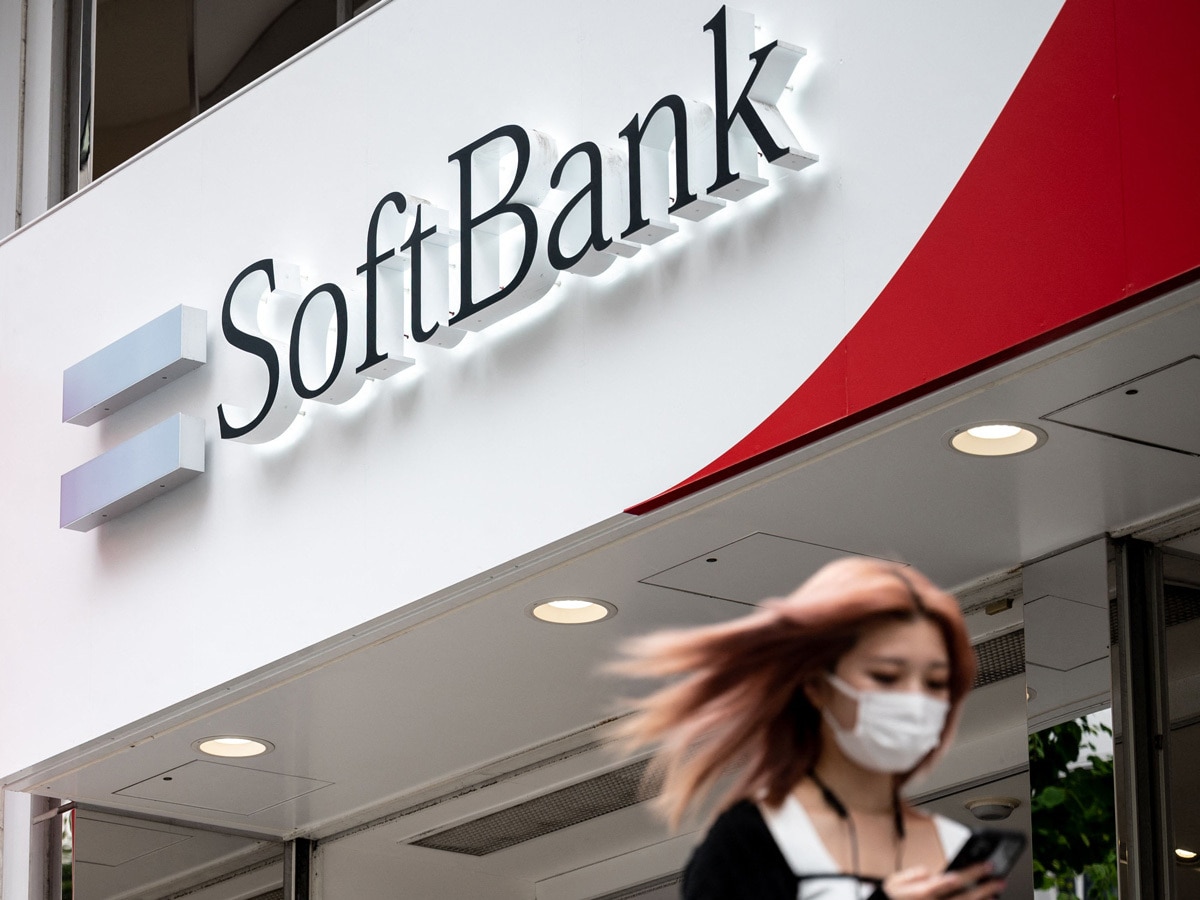The SoftBank [9984.T] share price has sputtered of late. As of 17 August, the stock has fallen by more than 28% over the past three months and circa 20% in the year to date. Investors seem unsure of the talismanic CEO – and investment supremo – Masayoshi Son’s strategy of backing AI stocks.
The sharp decline in the SoftBank share price seems out of sync with the Japanese tech investor’s quarterly results. In the first quarter of the year, SoftBank delivered a barnstormer, posting the biggest profit in the history of the company. Still, the second quarter was noticeably softer, with profits dented by the performance of its Chinese tech holdings.
Considering the value of the assets held in the funds, the SoftBank share price could be trading at a significant discount. That is if Son’s shift towards investing in companies at the forefront of AI pays off.
Can the SoftBank share price benefit from an AI pivot?
SoftBank is not an easy company to sum up, with Son offering the term “vision capitalist” to describe the company at a general shareholders meeting in June. This lack of definition has also led to fuzziness over what the tech investor’s long-term plan is.
“[Vision capitalist] might look inspirational on a T-shirt, and few would question that SoftBank is the world’s biggest vision capitalist. But it leaves the market, for now, no wiser,” wrote Leo Lewis, the Asia Business editor at the Financial Times, in an opinion piece for the publication.
“[Vision capitalist] might look inspirational on a T-shirt, and few would question that SoftBank is the world’s biggest vision capitalist. But it leaves the market, for now, no wiser” - Leo Lewis
Yet, CEO Son has spent the past 18-months reinventing the company he founded 40 years ago, according to Barron’s. The catalyst for the change was the failed WeWork IPO in 2019. That cast doubt on Son’s investment prowess, with the underlining impression that he had missed the details of WeWork’s business model. Then came the coronavirus pandemic and with it, activist investors called for SoftBank to sell assets, which they did, including holdings in Alibaba [BABA].
SoftBank used the money raised to pay down debt and buy back $17.9bn worth of stock, helping boost its share price. The Japanese company then used its own funds to invest in its Vision Fund 2, having grown the fund from $10bn to be worth around $40bn. This month, it was disclosed that Son and his management team will take a 17% stake in the fund, indicating bullishness around what is now its main investment vehicle.
Instead of the internet plays Son picked to grow Vision Fund 1, Son is putting Softbank’s substantial funds behind the artificial intelligence investment theme. A look at the enterprise stocks Vision Fund 2 has invested in shows several companies developing AI technologies. These include Eightfold AI, AInnovation and Behavok.
Our own thematic screener shows that the artificial intelligence investment theme is up 3.3% for the month and 27% for the year. Among the top performers in the theme are the Vanguard Information Technology ETF and Fidelity MSCI Information Technology Index ETF, both up over 18% for the year.
“AI is going to disrupt education and fintech, transportation, and medicine. I’m taking risks for that,” Son told Barron’s in a rare interview.
$239billion
Softbank's net asset value as of 30 June
Is the SoftBank share price discounted?
SoftBank’s net asset value was $239bn as of 30 June, yet its market capitalisation is $100bn – in theory, that means SoftBank’s share price is trading at a hefty discount. Softbank’s 12-month trailing price to earnings ratio is also notably inexpensive at 2.97.
When Barron’s asked why SoftBank trades at a steep discount, Son said: “The discount is too much. Investors still don’t trust our ability to continuously make good upside. We have to prove ourselves in the next few years. People talk about us as if we are an index fund. If you are an index, you don’t trade at a discount. Someday, I believe we will trade at a premium.”
If Son’s right about AI, then SoftBank’s share price could be considerably undervalued right now. Analysts seem to think there is plenty of upside in SoftBank’s share price. The median price target on the Financial Times is JPY11,400.00, which would see a 14.1%% upside on Tuesday’s close.
Disclaimer Past performance is not a reliable indicator of future results.
CMC Markets is an execution-only service provider. The material (whether or not it states any opinions) is for general information purposes only, and does not take into account your personal circumstances or objectives. Nothing in this material is (or should be considered to be) financial, investment or other advice on which reliance should be placed. No opinion given in the material constitutes a recommendation by CMC Markets or the author that any particular investment, security, transaction or investment strategy is suitable for any specific person.
The material has not been prepared in accordance with legal requirements designed to promote the independence of investment research. Although we are not specifically prevented from dealing before providing this material, we do not seek to take advantage of the material prior to its dissemination.
CMC Markets does not endorse or offer opinion on the trading strategies used by the author. Their trading strategies do not guarantee any return and CMC Markets shall not be held responsible for any loss that you may incur, either directly or indirectly, arising from any investment based on any information contained herein.
*Tax treatment depends on individual circumstances and can change or may differ in a jurisdiction other than the UK.
Continue reading for FREE
- Includes free newsletter updates, unsubscribe anytime. Privacy policy





